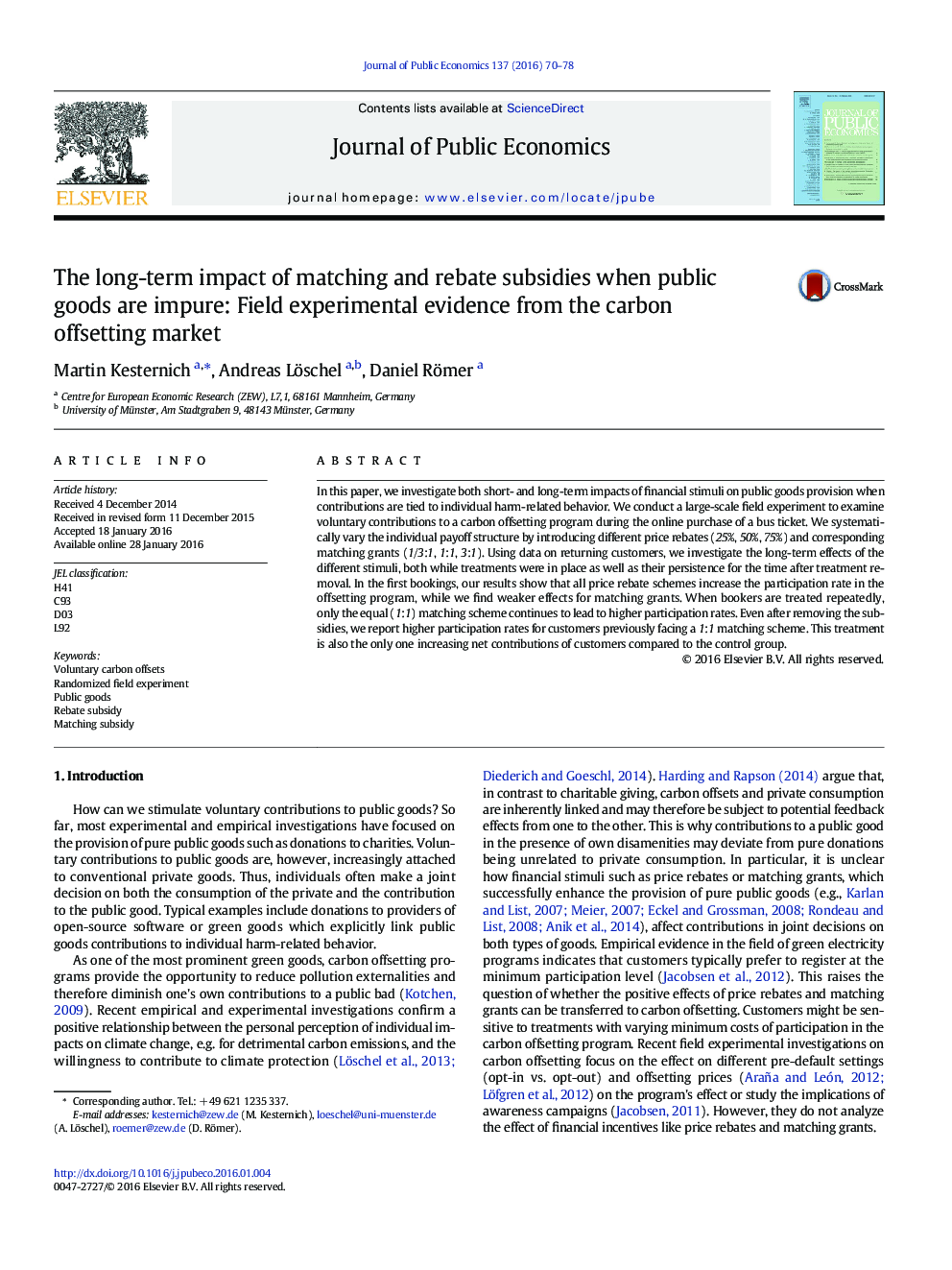| Article ID | Journal | Published Year | Pages | File Type |
|---|---|---|---|---|
| 969665 | Journal of Public Economics | 2016 | 9 Pages |
•We conduct a large-scale field experiment to examine voluntary carbon offsets.•We observe contributions tied to individual harm-related behavior.•We study both short- and long-term impacts of matching and rebate subsidies.•All price rebate schemes increase participation rates in the short-term.•The 1:1 matching scheme yields superior results in the long-term.
In this paper, we investigate both short- and long-term impacts of financial stimuli on public goods provision when contributions are tied to individual harm-related behavior. We conduct a large-scale field experiment to examine voluntary contributions to a carbon offsetting program during the online purchase of a bus ticket. We systematically vary the individual payoff structure by introducing different price rebates (25%, 50%, 75%) and corresponding matching grants (1/3:1, 1:1, 3:1). Using data on returning customers, we investigate the long-term effects of the different stimuli, both while treatments were in place as well as their persistence for the time after treatment removal. In the first bookings, our results show that all price rebate schemes increase the participation rate in the offsetting program, while we find weaker effects for matching grants. When bookers are treated repeatedly, only the equal (1:1) matching scheme continues to lead to higher participation rates. Even after removing the subsidies, we report higher participation rates for customers previously facing a 1:1 matching scheme. This treatment is also the only one increasing net contributions of customers compared to the control group.
